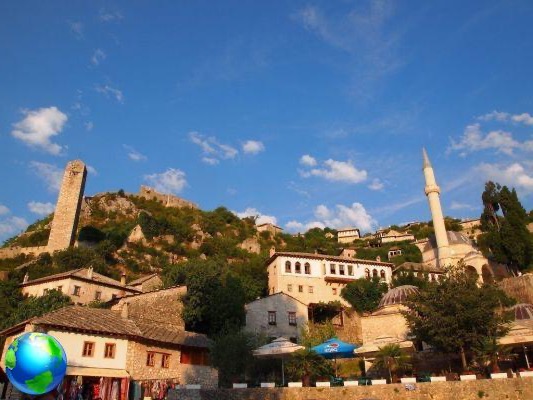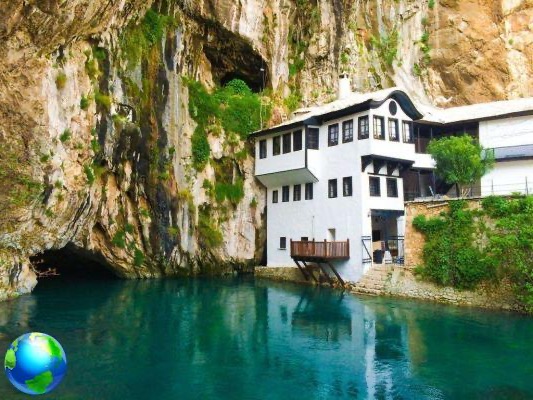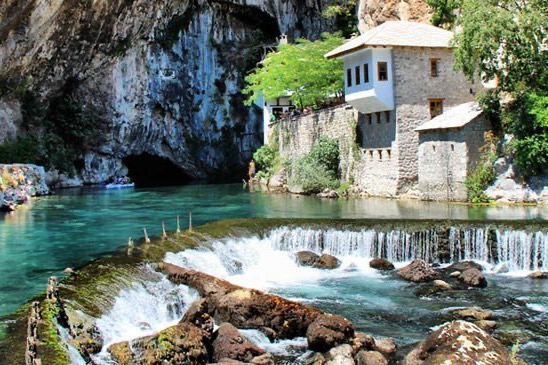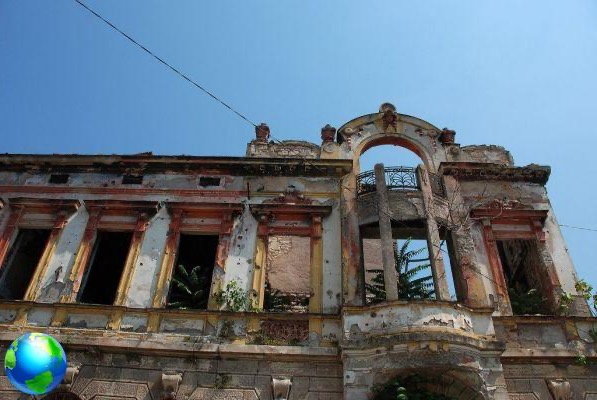
Ivo Andrić called her "City of stone" and there could not have been a better definition: Pocitelj seems to have arisen from the very mountain on which it is perched, as if each building had made its way through the dense trees, whose old trunks have the same grayish color as the walls. Arriving in front of this village, located on the right bank of the Neretva River, is like looking into the face of an old person, with a face furrowed with wrinkles, each of which tells a part of its story.
Pocitelj is a small town, less than 30 km from Mostar, which I think is a "must" for anyone visiting Herzegovina. It has a long history behind it fortified city and it played a role of great strategic importance during the medieval period under Hungarian rule; during the Ottoman occupation the main buildings of public life were built, such as mosques, hammam and Turkish baths, the schools (Makteb and madresa) and the clock tower. But now we can only glimpse a part of the original beauty of this place because even though it remained almost intact until the last century, the war of the 90s heavily damaged many of these precious buildings.
When we arrived we found a lady who was selling cones of fresh, dried or dried fruit in a basket and on a summer day like that she could only be the best welcome. One step after another, on these streets also paved with gray stone, we entered narrow paths that pass under arcades and become stairs to climb up to the Hadži Alija Mosque. This building dates back to the mid-500th century and has been restored several times, the latest works began in 2002 and brought to light the dome and minaret, destroyed by the bombs of the war in 1993, what remains of the ancient mosque is located in the open space in front. at the entrance, as if to remember the wound suffered and as a reminder of memory.
Next to this is a Turkish-style building which has housed theInternational Art Colony of Pocitelj: where artists from all over the nation and the rest of the world take refuge to meet, live and work in spaces dedicated to them; visitors can stroll through the gallery with guest works and relax in the courtyard in front. We didn't have time to visit the fortress that overlooks the town and we are content to look at it from below, but going up there the view of the surrounding landscape must be truly breathtaking and repay the effort.
Pocitelj is a dot on the map, it is such a small village that it would take half an hour to cross it all, wasting time even taking some pictures, but I think it deserves much more: a slow walk, sit under a pomegranate tree and eat some dried fig, go up to the Fort to see the Neretva flow, stop to look at works by unknown artists, caress the trunk of the centuries-old tree in front of the Mosque. It is a place to be enveloped, to breathe the quiet and in which listen to the past that still remains stuck among the stones.






